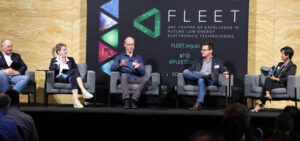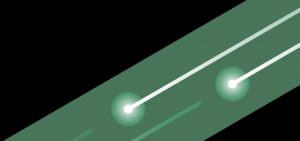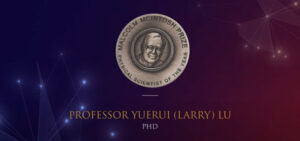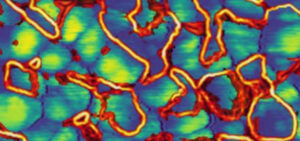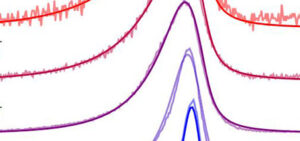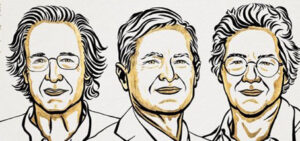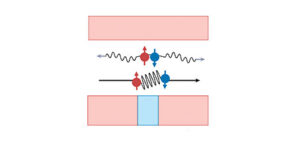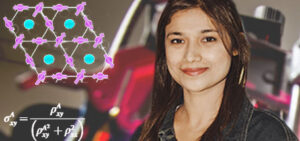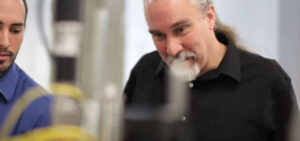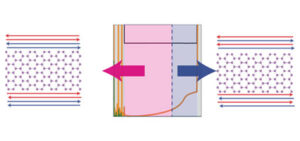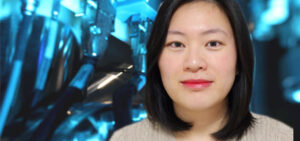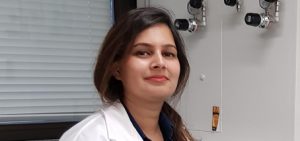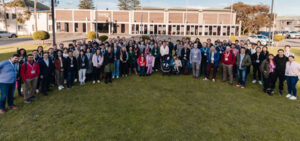FLEET News
An audience of around 90 gathered for the Meet FLEET event at UNSW earlier this month, comprising researchers, industry representatives and others. A major aim of the event was to serve as a bridge, fostering connections while providing industry professionals and researchers the opportunity to delve into collaborative research and development programs. Meet FLEET also showcased the Centre’s research capabilities …
This month’s ARC Discovery Project announcement saw FLEET research and researchers awarded additional research funding for ten projects building fundamental knowledge and strengthening Australia’s quantum, photonics and nanotechnology ecosystems. See the Australian Research Council media release. Dimitrie Culcer (UNSW); Allan MacDonald. Filling a substantial knowledge gap in novel semiconductors that can function as sensors in a frequency range where conventional …
Congratulations to Prof Yuerui Larry Lu (ANU), receiving the 2023 Malcolm McIntosh Prize for Physical Scientist of the Year—recognising his work in interlayer exciton pairs, paving the way for faster, more energy-efficient future electronics. Professor Lu was recognised for discovering interlayer exciton pairs, which can help to unravel the phenomenon of superfluidity. This discovery is paving the way for new …
Published first at Flinders University Latest research from Flinders University and UNSW Sydney, published in the American Chemical Society ACS Nano journal, explores switchable polarization in a new class of silicon compatible metal oxides and paves the way for the development of advanced devices including high-density data storage, ultra low energy electronics, and flexible energy harvesting and wearable devices. The …
Researchers from Monash University have unlocked fresh insights into the behaviour of quantum impurities within materials. The new, international theoretical study introduces a novel approach known as the ‘quantum virial expansion,’ offering a powerful tool to uncover the complex quantum interactions in two-dimensional semiconductors. This breakthrough holds potential to reshape our understanding of complex quantum systems and unlock exciting future …
Congratulations Prof Ferenc Krausz (MPQ) awarded the Nobel Prize in Physics today for his work in attosecond physics. Prof Krausz is the Director of the Max Planck Institute of Quantum Optics (MPQ). As a FLEET Partner Investigator, along with CI A/Prof. Agustin Schiffrin (Monash) and AI Nick Karpowicz (MPQ), Prof Krausz is involved in FLEET’s Research Theme 3, using ultrashort waveform-controlled laser …
A collaboration of FLEET researchers from the University of Wollongong and Monash University have reviewed the superconducting diode effect, one of the most fascinating phenomena recently discovered in quantum condensed-matter physics. A superconducting diode enables dissipationless supercurrent to flow in only one direction, and provides new functionalities for superconducting circuits. This non-dissipative circuit element is key to future ultra-low energy …
The public’s awe of FLEET’s levitating superconductor and engaging dialogue with FLEET at the 2023 Sydney Science Trail enabled a shift in public understanding about how society uses digital technology and a call for a socially responsible digital future. FLEET was one of more than 20 science organisations engaging audiences with interactive exhibits at the Sydney Science Trail Expo, developed …
A note from previous FLEET PhD candidate Dr. Wafa Afzal, still researching novel materials, now at Archer Materials I was a PhD student at FLEET, based at the University of Wollongong under the supervision of Prof. Xiaolin Wang, studying the electrical and magnetic properties of topological Weyl semimetals. I’m still researching novel materials, now in the Quantum team at Archer …
Here’s the problem: the more we use computers, the more energy that’s required. Driven by a deep intellectual curiosity, Prof Fuhrer (Monash University) was drawn to science at an early age and now has a passion for mentoring the next generation of scientists, teaching them how it pays to be patient. New video out from the Australian Academy of Science, …
‘Trimming’ the edge-states of a topological insulator yields a new class of material featuring unconventional ‘two way’ edge transport in a new theoretical study from Monash University, Australia. The new material, a topological crystalline insulator (TCI) forms a promising addition to the family of topological materials and significantly broadens the scope of materials with topologically nontrivial properties. Its distinctive reliance …
A recent UNSW-led paper published in Nature Communications presents an exciting new way to listen to avalanches of atoms in crystals. The nanoscale movement of atoms when materials deform leads to sound emission. This so-called crackling noise is a scale-invariant phenomenon found in various material systems as a response to external stimuli such as force or external fields. Jerky material …
Currently applying materials skills learned at FLEET/RMIT to improve solar technologies, at CSIRO Greetings from CSIRO! I was a PhD student at FLEET / RMIT from 2017 to 2020, working on the development of piezoelectric and sensing applications of atomically thin materials. “The thing I enjoyed most about FLEET, other than the technical aspects of my work, was the sense …
Just under 120 members, family and affiliates gathered in Lorne Victoria this month for FLEET’s 2023 annual workshop, which featured 35 scientific talks (over 60% of them by ECRs), 30 accompanying family (17 kids), a cultural celebration dinner, karaoke, quiz, lawn bowls, and lots of unstructured time for collaborative discussions. Invited presentations included: Nicola Gaston, MacDiarmid Institute Mateusz Król, Warsaw …


